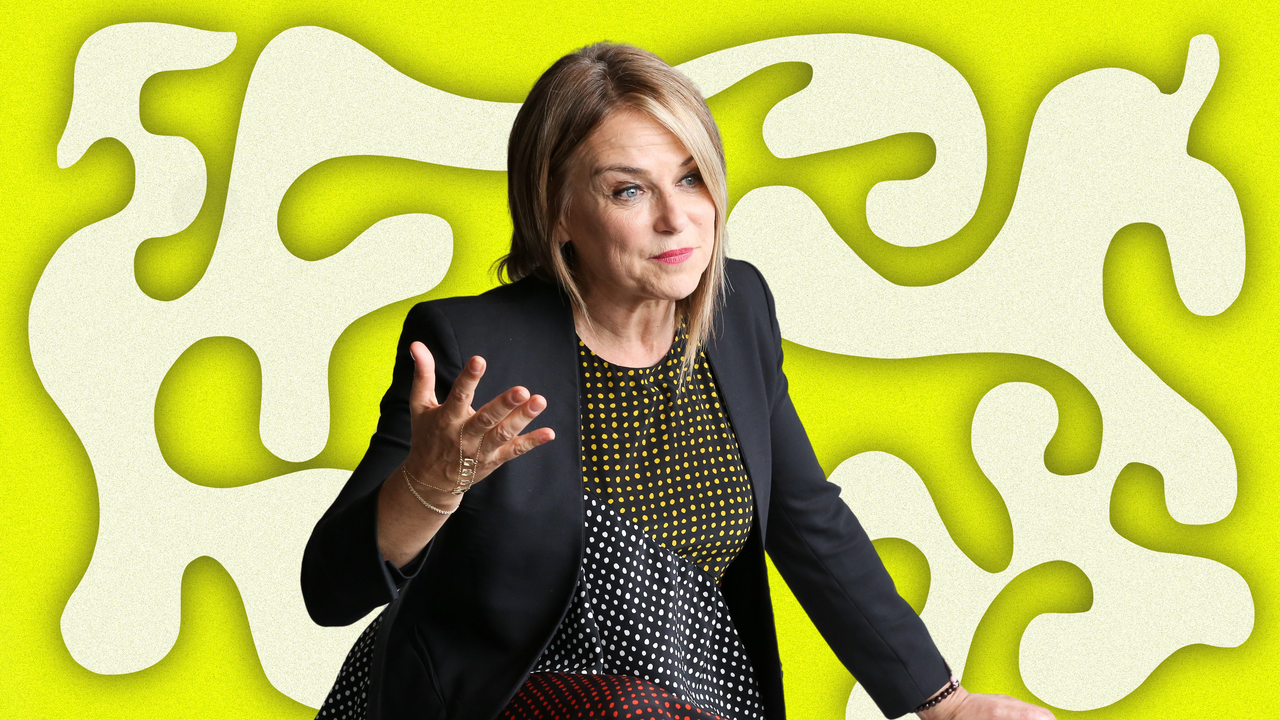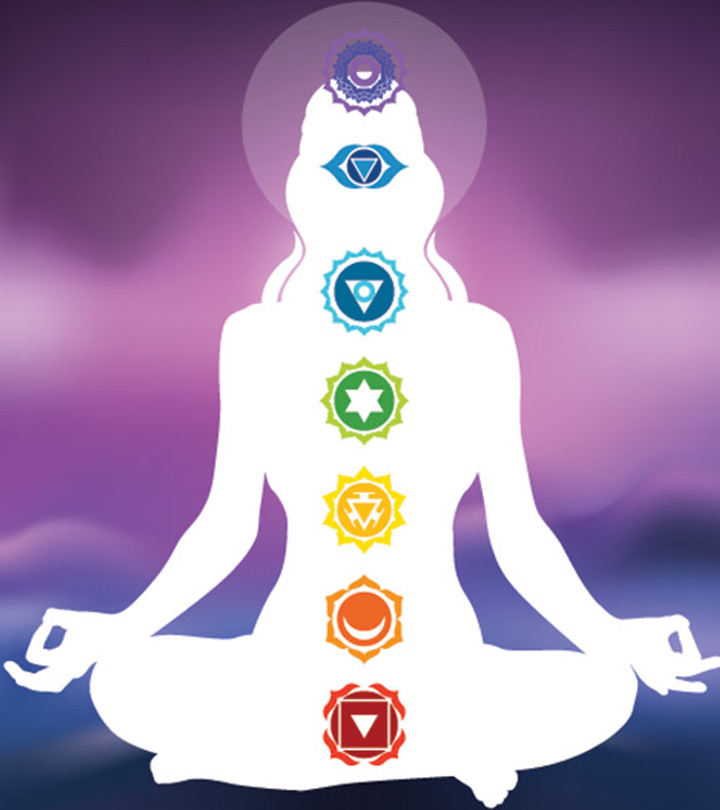Throughout the first 60 seconds of our dialog, the psychotherapist Esther Perel introduces me to an idea she calls "enforced presentism." It's a sense you would possibly know nicely from the pandemic. "You possibly can't suppose two days forward," says Perel. "All the pieces is within the second, and also you're coping with this persistent unpredictability and stress."
You would possibly count on Perel to be higher outfitted than most to take care of such turbulence, given her expertise in navigating romance and relationships, certainly one of the crucial troubled and anxiety-inducing human experiences. Over the past 4 many years, she's develop into one of many world's most famous relationship therapists, writing two bestselling books about {couples}, want and sexuality, Mating in Captivity, and The State of Affairs, and internet hosting two podcasts, The place Ought to We Start? And How's Work? (Each invite listeners into classes she conducts between people who find themselves romantically or professionally linked.)
However Perel says her pandemic acquired off to a tough begin. First, she was scared. Then, she needed to come to phrases with the truth that, in accordance with the covid classifications, irrespective of how she considered herself, she was technically aged. Within the subsequent section, she coordinated a yoga group with associates on three continents. She began occurring hikes and walks. She recorded seasons of each of her podcasts.
"Then, in the future I wakened and I stated, I wish to create a recreation," she remembers. "I wish to create a cheerful challenge. I can't take care of the loss, the unhappiness, the grief, the uncertainty-those existential features. I additionally wish to take care of the a part of us that retains us linked to playfulness, to curiosity, to the unknown."
That become a card recreation (additionally) known as, "The place Ought to We Start? A Recreation of Tales". Stuffed with thought-provoking prompts – suppose "I've at all times questioned if it's regular to…" and "The final promise I broke was…" – it's meant to facilitate connection by getting individuals to inform tales that they may in any other case cover behind conversations concerning the humidity. Extra importantly, it's as an antidote to the fog of enforced presentism, and a buffer in opposition to the atrophied social abilities we would all carry into the world because it lifts.
Right here, she talks about getting into again into the world, the proliferation of the time period "trauma," fixing our work-as-identity issues, and why we have to retire the concept of the soulmate.
GQ: Primarily based on what you've seen in your work – and simply anecdotally or personally – what are the issues, relationships-wise, that individuals have most been scuffling with within the final 18 months? What do you suppose will proceed to be points as we re-emerge into a way of normalcy?
Esther Perel: Huge crises at all times function as relationship accelerators. Particularly a pandemic and a catastrophe says, "Life is brief. Life is fragile. Issues may finish any second." Individuals articulate the attention of mortality – we normally attempt to not be too conscious of it. So that you immediately start to sharpen your priorities and also you begin to disregard the superfluous and the unimportant and the misguided.
You start to say, "What am I ready for? Let's transfer in collectively. Let's have the infants we've been desirous to have. Let's get married. Let's transfer." Or: "I've waited lengthy sufficient. I'm out of right here. That is now not sustainable to me." It goes in these two instructions. It's what I would like and what I now not need.
So at this second, most of my colleagues, we’re speaking concerning the avalanche of disruptions which have taken place in relationships, and the implications thereof. I might say there's been loads of totally different sorts of disruptions. Collapse of boundaries: individuals have by no means labored as onerous, they usually have needed to flip their home right into a fitness center, a restaurant, an workplace, a college, all of it, whereas sitting on the identical chair. That's been an actual problem for individuals.
Why is it so onerous for us to carry all of our identities at one time in a single area?
In the identical means we’d like actuality and creativeness, and we’d like groundedness and we’d like journey, we’d like construction and spontaneity. Our guidelines construction us, and people guidelines are structured in time and in area. You got here to work this morning, you dressed up a sure means that made sense for you, that’s totally different than in case you go to the fitness center, that’s totally different than in case you go to a membership. The garments go along with the place the place you go, with the constructing that you just enter, with the best way that you just behave. A rule is a fancy set of issues that organises you. That provides you a way of how one can behave, what to do, how one can suppose, how one can relate to individuals. While you don't have any of that – you’re a companion, a mother or father, a lover, a pal, a son, an worker, a supervisor – and it's all taking place on the similar desk in the identical sweatpants, it turns into like a fog. You begin to expertise a kind of lethargy. You begin to lose the pleasure of what you do.
It strikes me that this could possibly be a second the place we would start to grasp all of the identities we're performing, and perhaps really develop into extra aware or conscious of those roles in a wholesome means.
Sure. Initially, lots of people slowed down sufficient that they might concentrate. Individuals grew to become extra observant of the rhythms of their lives – of the bushes round them for that matter. We slowed down for the primary time in a very long time. For the reason that early 1900s, all we’ve completed is gone quick.
Besides if you sit in your mindfulness moments. These mindfulness and meditation incursions into Western tradition are all in response to the diploma of acceleration that our tradition has skilled.
What do you consider the crucial to be glad?
Happiness used to belong within the afterlife. In Heaven. Individuals suffered when on earth, particularly good Christians, in order that they might perhaps be rewarded later. That is the primary time in historical past that you just ask Western dad and mom what they need for his or her kids, and the very first thing they are saying is, "I would like them to be glad." They don't say, "I would like them to be wholesome, alive," as a result of youngster mortality has gone down. They don't say, "I would like them to be good individuals." They're supposed to speak about, "I would like them to be glad."
The tyranny of positivity is a burden. Happiness is an final result, not a mandate, as a result of the mandate of happiness makes you continually should surprise, "Am I glad? Am I glad sufficient? May I be happier? Ought to I depart this relationship? I'm glad, however perhaps I could possibly be happier some place else." So it turns into, how do I do know? After which it turns into huge uncertainty, huge self-doubt.
Happiness is available in a second, the place I end an interview with you, otherwise you with me, and perhaps we are saying, "That was actually good. I'm glad. I'm glad. I'm happy." After which off we go. it's a second. It's not, "I’m glad in my life. I'm a cheerful particular person." I'm an individual with a spread of feelings.
The melancholy and anxiousness of in the present day is the mirror response to the strain on happiness. You possibly can't be unhappy. You possibly can't be blue, melancholic. Then you definately get the permission to be unhappy in case you're depressed. So let's pathologise it. And if melancholy isn't sufficient, let's say you've had trauma.
Trauma is the licensed language to speak about ache and struggling at this second. That doesn't imply there isn’t a trauma, however it implies that if we are saying the phrase trauma, it provides me permission to say, "I’ve ache and I’ve suffered, and it was onerous, and I’ve legacies from it."
I believe it's good that we're recognising trauma on a bigger scale, however I'm curious at what level it's virtually rendered meaningless.
In a society that mandates happiness, the struggling doesn't disappear, however you’ll want to discover a new legitimacy. So in case you put it within the framework of trauma, it turns into legitimised.
So as a result of we're so obsessive about happiness, we will't simply say, "I'm unhappy," we have to have some motive to really feel unhappy?
That's proper. A framework that provides it permission and legitimacy. That's the framework of trauma. That doesn't imply there aren’t any developmental traumas – let's be very clear. Trauma just isn’t what occurred, trauma is your response to one thing that has occurred over time. We've expanded the phrase trauma from large, terror-inducing, helplessness-inducing occasions, to what we name in the present day the traumas with small t's, that are the developmental traumas. These are tremendous, tremendous vital. However in society, there’s a direct correlation between the strain to be glad and the discharge valve that comes via the trauma. I'm allowed to say that I'm not glad, as a result of I had trauma.
So what’s the purpose behind the cardboard recreation? What's the last word want for you?
The sport is a recreation of tales. I’ve a podcast that tells tales about our lives. Our relationship tales are the best way we make that means of our life. Tales are the best way we join with individuals. Tales are the best way we inform ourselves. I ask questions in my observe the place persons are invited to rewrite their tales in order that they don't keep caught there, as a result of the story is linked to your core beliefs. So the sport is a recreation of tales and it incentivises individuals to inform tales that they not often inform.
At this level, simply due to the timing, it's develop into a recreation for connecting and reconnecting. It's a recreation the place individuals can actually overcome their social atrophy and the social anxiousness that a few of us are experiencing. It provides you a way of the way you reenter, how you’ve got these small conversations that then develop into deep conversations typically.
What are among the issues individuals ought to look out for almost about social atrophy?
"So how was the pandemic?" This can be a query that I've heard fairly a bit. [laughs] As in case you simply got here again from some journey! And even if you come again from a visit, more often than not persons are not fascinated about you speaking a couple of sentence. They don't actually wish to know, "First we went right here after which we did that. And also you gained't imagine this after which…" Individuals know that they've gone via one thing large. They don't actually know what they will ask. They don't know the way a lot others actually wish to know. That's a giant one.
You've provided fascinating views on loads of the Western myths we’ve. What do you suppose are among the American myths that undergird our society that had been most uncovered by the pandemic and by COVID?
Self-reliance, effort, optimism, "Roll up your sleeve, get to work. There’s nothing you can’t remedy, in case you put your thoughts to it." This "it's all on you, attempt more durable mentality." A pandemic will certainly spotlight the notion of interdependence. Public well being is a conception of interdependence. You do one thing not only for you-you do one thing as a result of it protects others. That notion of interdependence has taken a beating over the past [several years]. It's all self-help, self-love, self-compassion. Self is in entrance of loads of issues, and that in the end finally ends up making a self focus. That doesn't imply self just isn’t vital. Nevertheless it additionally involves self and different. It's I and thou. We don't exist individually from our connections with others.
What else?
The soulmate fable. The soulmate has at all times traditionally been God. One and solely meant the divine. While you begin to flip a human being into God-like, and also you collapse the social and the religious, you set your self up somewhat bit. Relationships are sustained by the group that they reside in. Not being alone doesn't imply being two. And folks right here shouldn’t have sufficient social assist, irrespective of which means you flip. They don't have sufficient confidants, or individuals they speak to. Plenty of issues they convey to therapists must be shared in group settings. {Couples} don't inform the reality to anyone. You're finest associates, when they might divorce, you didn't even see it coming.
The following fable, at this second, is the centrality of labor. On the one hand, work may be very liberating. You come to America and in case you work onerous, you can also make it. On the similar time, when individuals lose their jobs, particularly males, they're prepared to leap off the roof. There must be different sources of that means and different sources of values that isn't nearly success and cash and all of these issues. All of the analysis asking individuals what they might have needed to do in a different way, not a single one says, "I might have needed to work onerous."
So with these myths in thoughts, what would you advise individuals to do, popping out of the pandemic, to attempt to counteract them?
There's no higher antidepressant than doing for others. As a substitute of simply occupied with self-care, handle others. While you do for others, if you see different individuals's ache, experiences, starvation, you title it, you’re feeling such as you matter. You derive that means when you find yourself vital to others. Your that means doesn't simply come from what you do for your self.
When it comes to the soulmate, one particular person can’t offer you what a complete group ought to present. That’s certain to create a crumbling of too many expectations on one unit. So don’t surrender your mates. A marriage just isn’t saying goodbye to your circle or to those relationships. They're tremendous vital, and particularly the boys. The boys, notably guys in straight relationships, lose huge quantities of social connections as soon as they get married. However that is for individuals in all varieties of relationships. One particular person can’t offer you what an entire village ought to present.
Then for work, work as identification is the place it's going. Love and work are changing conventional communal constructions and faith. However take into consideration different sources of objective and that means, and put them in place. What else issues in your life? If it's solely work, when work doesn't go nicely, psychological well being issues are very shut across the nook.
This interview has been edited and condensed.



























Comments